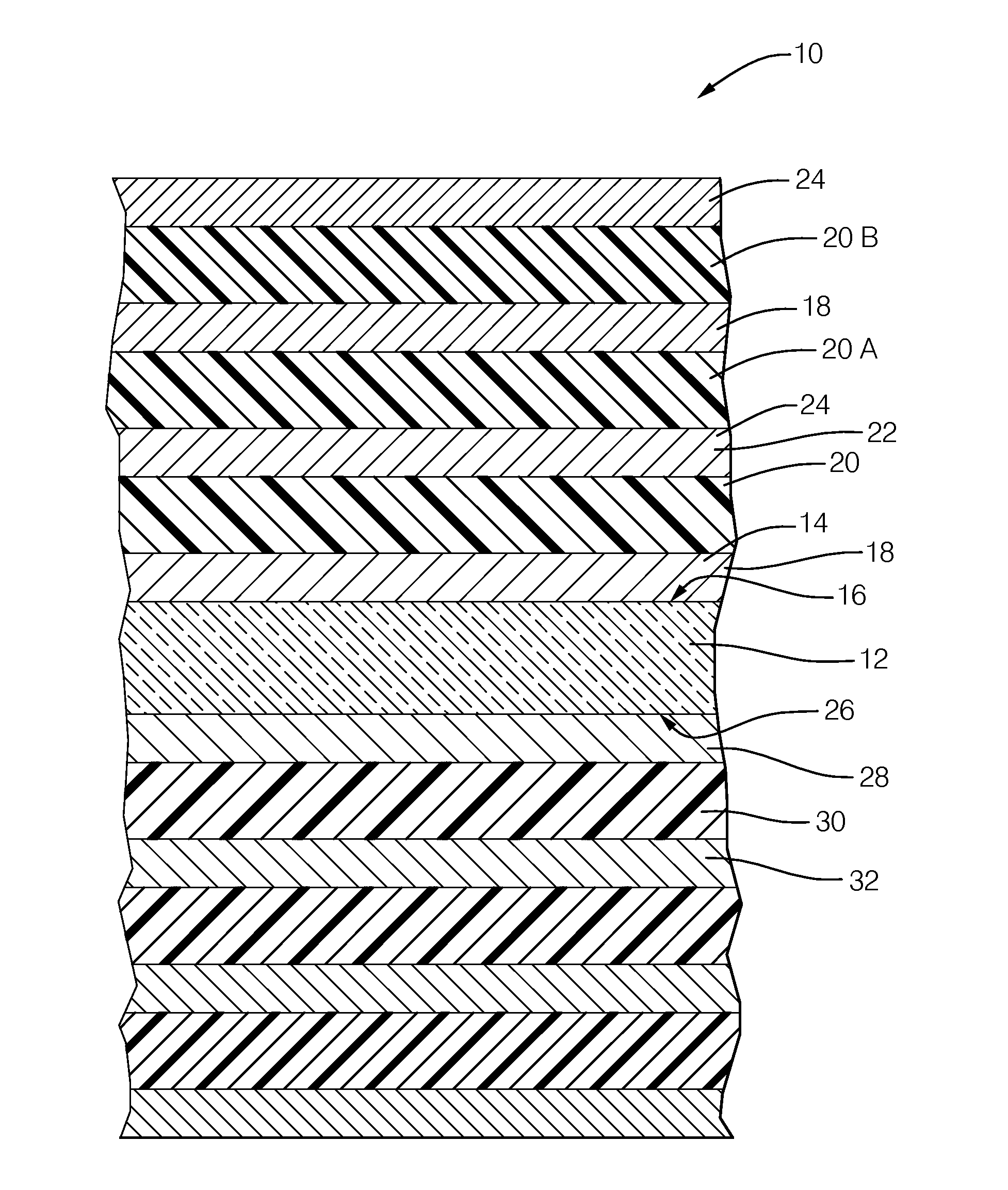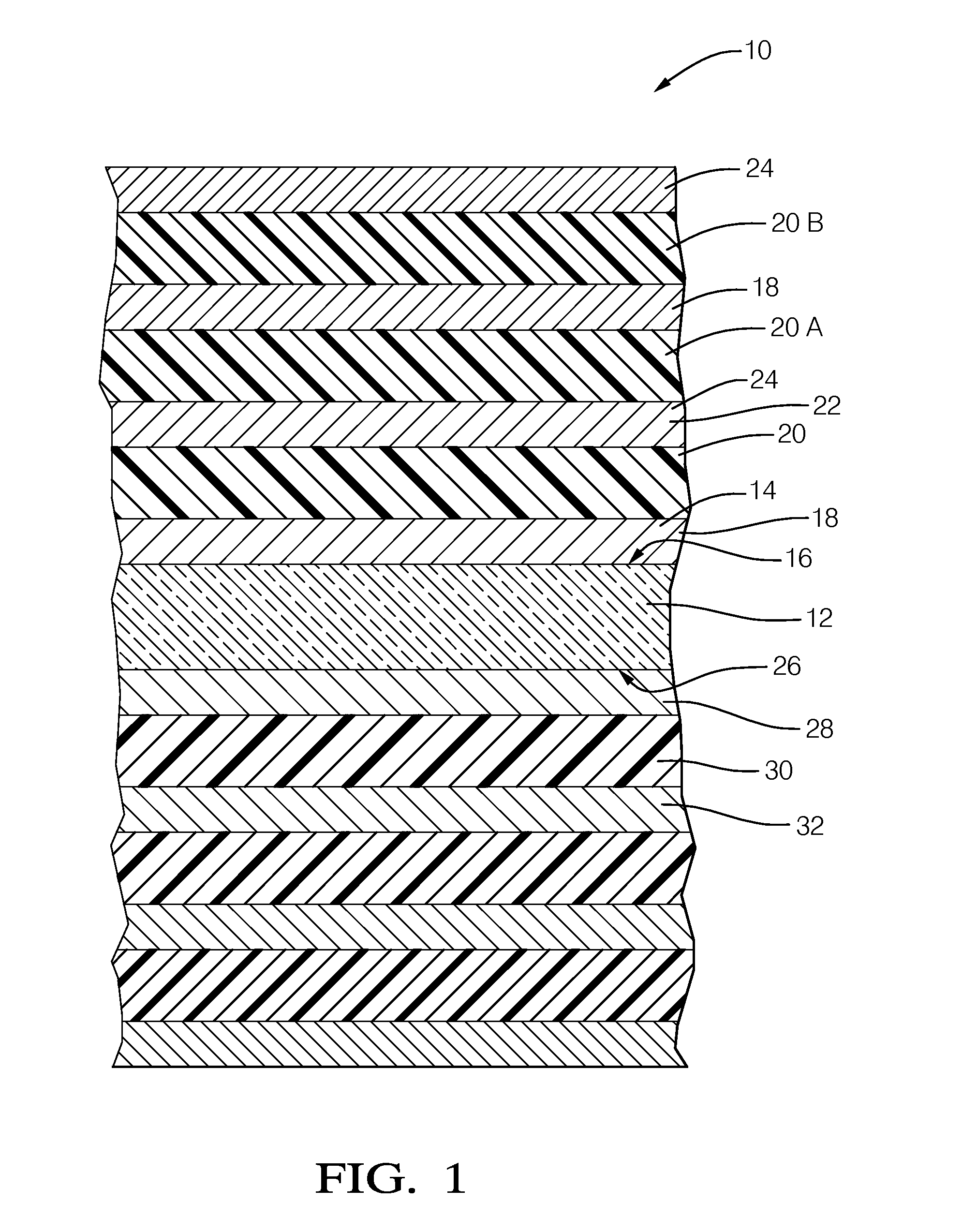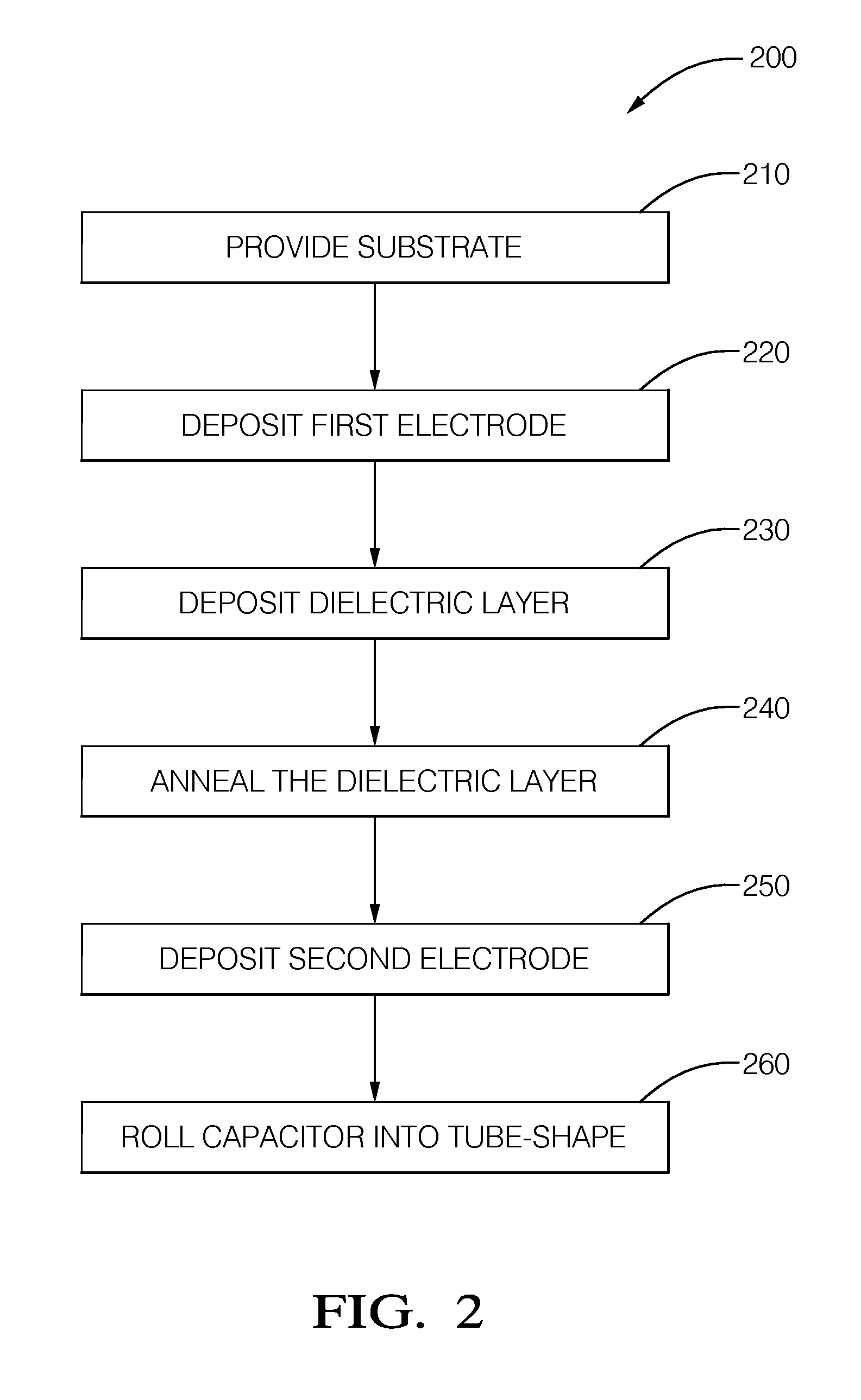Plzt capacitor on glass substrate
a technology of glass substrate and capacitor, applied in the field of capacitors, can solve the problems of inability to bend or roll capacitors formed on this substrate to meet certain packaging requirements, ni foil requires polishing and oxidizing quickly,
- Summary
- Abstract
- Description
- Claims
- Application Information
AI Technical Summary
Benefits of technology
Problems solved by technology
Method used
Image
Examples
Embodiment Construction
[0010]FIG. 1 illustrates a non-limiting example of the various layers described herein to form a capacitor 10. The relative thickness of the layers illustrated is not meant to infer anything regarding the relative thickness of the actual layers of materials used to form the capacitor 10, but are only shows as different thicknesses to make it easier to visualize the description presented below.
[0011]The capacitor is generally formed or built upon a substrate 12 formed of glass. As used herein, glass is an amorphous (non-crystalline) solid material that exhibits a glass transition, which is the reversible transition in amorphous materials (or in amorphous regions within semi-crystalline materials) from what is often considered a hard and relatively brittle state into a molten or rubber-like state. However, as will be described in more detail below, recent developments in manufacturing thin layers of glass have shown that thin layers can be somewhat flexible. In general, the glass used...
PUM
| Property | Measurement | Unit |
|---|---|---|
| thickness | aaaaa | aaaaa |
| radius | aaaaa | aaaaa |
| temperature | aaaaa | aaaaa |
Abstract
Description
Claims
Application Information
 Login to View More
Login to View More - R&D
- Intellectual Property
- Life Sciences
- Materials
- Tech Scout
- Unparalleled Data Quality
- Higher Quality Content
- 60% Fewer Hallucinations
Browse by: Latest US Patents, China's latest patents, Technical Efficacy Thesaurus, Application Domain, Technology Topic, Popular Technical Reports.
© 2025 PatSnap. All rights reserved.Legal|Privacy policy|Modern Slavery Act Transparency Statement|Sitemap|About US| Contact US: help@patsnap.com



